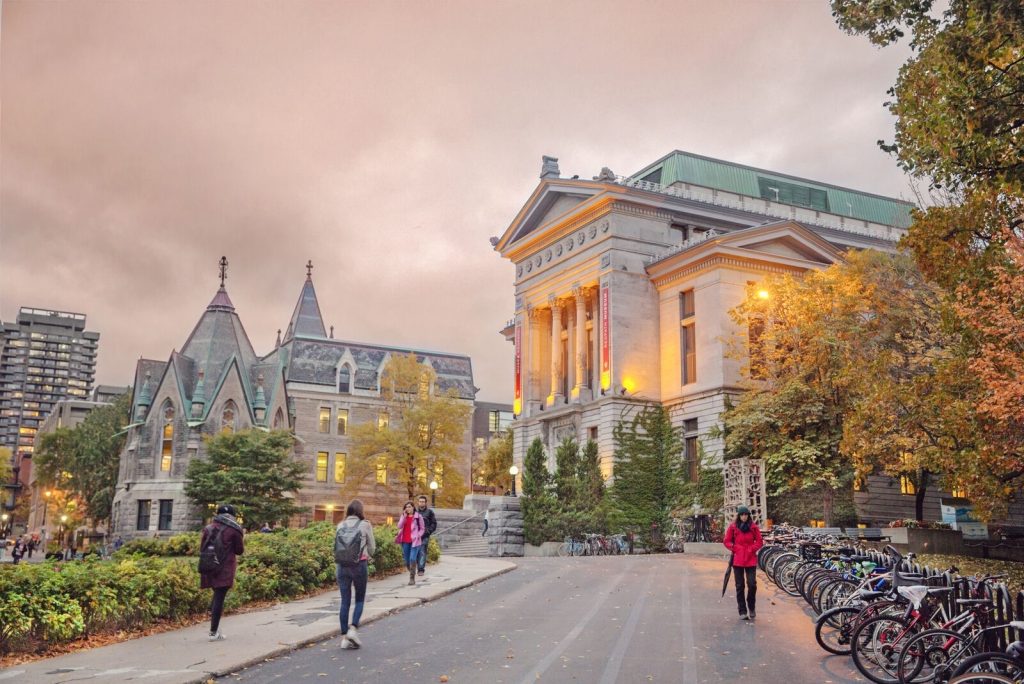Recently, Canadian business schools have seen an increase in international applicants, demonstrating that the country is becoming a reputable location for those pursuing MBAs.
With a high quality of both education and living, Canada is an ideal destination for seeking an optimal MBA experience. If you are looking for a quality, globally recognized MBA, Canada might be the ideal destination for you!
Why go to Canada for your MBA?
Typically, when one thinks of the best regions for top MBA programs, Asia, Europe, and the US come to mind. However, Canada’s numerous exceptional schools and great standard of living make it a bit of a hidden gem of MBA opportunities.
Top-ranked MBA programs
Historically, Canada has been a pioneer in business education. Today, six Canadian universities rank in the top 50 MBA programs outside the US, and Canada’s MBA programs are globally recognized.
Canadian universities boast quality research facilities that allow you to deeply explore the ideas and objectives you’re interested in. Curricula involve practical, real-life ideas that promote critical, out-of-the-box thinking and allow students to develop their skills to tackle real-world business challenges.
Additionally, Canadian business schools have recognized the importance of both general and specialized programs. As a result, most allow students to focus on various fields, from project management and supply chain management to sustainable commerce and data analytics. Therefore, Canadian MBAs can offer you many different options depending on your background and goals.
Political and economic stability
In countries like the US and the UK, political tensions and rising economic inequality can cause a lot of stress for residents. This is especially true for international students whose visas and quality of life may be called into question as a result of nationalistic policies. However, Canada boasts not only political and economic stability, but also a great healthcare system, quality of life, and many post-MBA work opportunities.
Canadian leaders are aware that attracting global talents via MBA programs can also promote the growth of a thriving business environment in their country.
Availability of jobs
Toronto has become one of the fastest-growing tech jobs markets globally, surpassing even the Bay Area in 2017, while Canada’s private sector has experienced unprecedented surges.
After completing your MBA, you will also receive a work permit, which is eligible for up to three years. During these working years, you can apply for Canadian permanent residency as you have the number of years of experience.
Additionally, while studying, international students are eligible to work up to 20 hours per week (and full-time during vacations). So, not only can students look forward to post-MBA job opportunities, but can also count on the flexibility to start paying back their loans during their degrees!
Good quality of life

Over 500,000 international students come to Canada every year, largely because many Canadian universities consistently rank highly for quality of student life. In general, Canada ranks above average for a wide array of quality of life factors, such as housing, security, and income.
For example, Montreal, with its major universities in the heart of the city and year-round festivals and events, is one of the world’s best cities for students
Some of Canada’s top-ranked schools
Canada is home to some of the best universities in the world; in fact, according to Times Higher Education, 32 Canadian universities rank among the best in the world.
We have compiled a list below of some of the best options for MBA applicants in particular. While this list is certainly not exhaustive, it gives an idea of some of the best MBA programs available in Canada and what they offer.
Western’s Ivey Business School
Tuition: $110,000
Duration: 15 months
Ivey emphasizes the importance of practical learning and boasts a top-rated general management and leadership program that has produced globally recognized leaders like Bonnie Brooks and Linda Hasentratz.
Queen’s University’s Smith School of Business

WEB Goodes Hall at Smith; source: https://www.queensu.ca
Tuition: $101,000
Duration: 16 months
Smith Business School’s top-ranked MBA program is available anywhere in the country – students can attend classes in any major city or even remotely.
Each student has a support group, including a team coach, career coach, executive coach, and lifestyle coach. As part of a team-based global business project, students travel to a location of their choice to work on a business issue.
Toronto’s Rotman School of Management
Tuition: $107,000 (for Global MBA); $114,000 (for 1 year MBA)
Duration: 18 months/13 months
Students attending Rotman’s Global MBA can develop expertise and networks in global markets, entrepreneurship, innovation, and personal leadership. They are required to travel to 11 cities on 5 continents.
The one-year program also allows for global experience, offering the opportunity to take an international exchange course in Italy or China.
For both programs, the Leadership Development Practicum provides individual coaching and support to create empathetic, results-driven leaders.
Concordia University’s John Molson – Montreal
Tuition: $75,000
Duration: 20 months
Molson features a one-day-a-week schedule, distributive learning format, and practically minded courses with simulations and cases. Students have the opportunity to take a study trip after the second semester to meet with business leaders.
Each cohort is assigned its own champion, or well-respected business leader who remains in contact with students throughout the program. Additionally, students work on a specific project aligned with their interests.
HEC Montreal
Tuition: $8,000-$17,000
Duration: 12 months
HEC’s bilingual program offers a practice-focused program within a collaborative learning environment. Courses focus on building critical thinking, diversity, and a global focus.
McGill University’s Desautels Faculty of Management

McGill University; source: https://www.mcgill.ca
Tuition: $79,500
Duration: 22 months
Desautels provides a solid foundation in management, with specializations in a number of fields like marketing, business analytics, or global strategy.
Unlike any other MBA program, each module in Desautels’ first semester is taught by an interdisciplinary team of professors.
HEC Montreal/McGill University’s Desautels Faculty of Management
Tuition: $89,000
Duration: 15 months
This program, a partnership between the two schools, is great for those who want close contact with business leaders: over half of students here are vice-presidents or above, and 25% are presidents, CEOs, or general managers. The program is bilingual, so it’s great for those who speak French.
Students spend 8 days abroad to learn about managing under uncertainty, and the school is known for encouraging diversity.
Alberta School of Business
Tuition: $67,000
Duration: 22 months
Alberta’s MBA program focuses on building students’ leadership capacities and networks. The Executive Coaching Program drives growth for maximized impact, developing leaders who can create change. Also, during a capstone project, students work on a business issue to develop a tangible solution.
Students also spend two weeks in China to learn about how businesses in the country operate.
How to apply for an MBA in Canada
As you start the MBA application process, it’s important to plan effectively and understand what will be expected of you to gain entrance to one of Canada’s programs.
Do your research

To ensure you are choosing a school that best aligns with your needs and objectives, it’s important to thoroughly understand your options. Look for schools that offer programs that match with your specialization, are in a location that attracts you, and will give you the career boost you need.
Once you have shortlisted the universities, you need to check the individual deadlines of the universities so that you can prepare your application process accordingly.
Requirements for Canadian MBAs
Most schools in Canada require a bachelor’s degree with a GPA of at least 3.0 – 3.5.
You will also be required to submit both GMAT and English proficiency test scores (for international applicants) for most universities.
The minimum GMAT score required usually ranges from 500 to 600 for top universities. The minimum TOEFL score needed by most of the universities for admission varies from 550 to 600 in the Paper-based test and 213 to 250 in the Computer-based test. Some business schools in Canada also accept IELTS scores.
Most of the MBA programs in Canada require at least two to three years’ work experience. Even though some of the business schools may accept your profile without any prior work experience, preference might be given to candidates having work experience.
You will also have to submit a detailed resume and recommendation letter.
Need help deciding on a school or preparing your application?
Applying for an MBA is a long and complex process that requires a lot of thought and planning, especially as an international candidate. Deciding on the right school can be daunting, and making sure you get everything right during the application process is sometimes hard to do.
Luckily, we have an expert team who can help you in every step of this process, even beginning with the question: Is a Canadian MBA really right for me?

To see how we can help you from the very beginning until the very end of your business school application, work with us today!
Real MBA Essays That Got People In
School-specific sample essays that got our clients accepted





